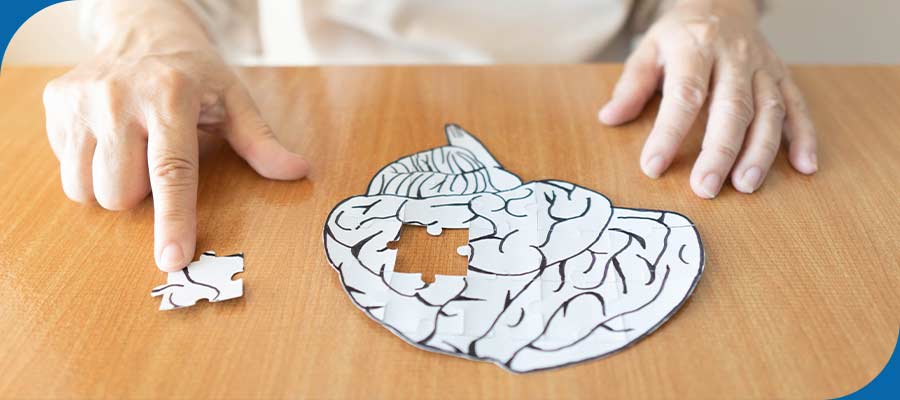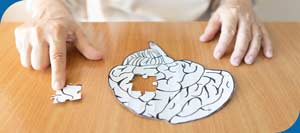Stroke Treatment Specialist Q&A
Stroke treatment involves a comprehensive approach aimed at minimizing damage and improving recovery outcomes. At Cape Fear Physical Medicine and Rehab, our professional team provides personalized care for stroke patients, focusing on rehabilitation techniques that promote healing and restore function. We work closely with each patient to develop a tailored plan that addresses their unique needs, helping them regain independence and improve their quality of life. For more information, contact us or schedule an appointment online. We are conveniently located at 1540 Purdue Dr, Ste. 200, in Fayetteville, NC 28303.


Table of Contents:
What is a stroke?
What causes a stroke?
What are the risk factors for stroke?
What are the signs and symptoms of a stroke?
While a stroke is a life-threatening medical emergency in the immediate sense, it can also have life-altering effects long after the initial episode. It is essential to seek immediate medical attention when a stroke occurs and also to find high-quality rehabilitative care after a stroke to recover from the effects of the stroke. The stroke treatment specialists at Cape Fear Physical Medicine & Rehab would be happy to answer any of your questions about strokes and provide you with exceptional rehabilitative care.
A stroke is a medical emergency during which the blood supply to one part of your brain is either interrupted entirely or significantly reduced. When this occurs, your brain tissue does not receive the oxygen and nutrients it requires to function, and brain cells begin to die off within a matter of minutes.
There are three different types of strokes, which are as follows:
• Ischemic Stroke: this type of stroke is the most common, accounting for approximately 87 percent of all strokes. Ischemic strokes involve blocked or reduced blood flow within the artery that supplies oxygen-rich blood to the area of the brain where the stroke occurs. An ischemic stroke is a life-threatening medical emergency.
• Transient Ischemic Attack: also known as a mini-stroke, a transient ischemic attack involves a temporary interruption in blood flow to the brain. Such strokes last approximately five minutes and are considered warning signs that an ischemic stroke, which is much more severe, could be imminent. As such, while a transient ischemic attack is not generally a life-threatening medical emergency, it does require urgent medical attention to prevent an ischemic stroke from occurring.
• Hemorrhagic Stroke: this type of stroke is less common than ischemic strokes and transient ischemic attacks and also affects the brain differently. Whereas ischemic strokes and transient ischemic attacks involve blocked or reduced blood flow to the brain, a hemorrhagic stroke occurs when an artery in the brain ruptures, causing excessive blood flow and pressure to the surrounding brain tissues. Although they are less common, hemorrhagic strokes are life-threatening medical emergencies and can result in the same complications as an ischemic stroke.
The causes of ischemic strokes and transient ischemic attacks are different from those of hemorrhagic strokes. Ischemic strokes and transient ischemic attacks are commonly caused by the following:
• Atherosclerosis (i.e., narrowing of your arteries)
• Blood clots, which can occur due to conditions like arrhythmia or myocarditis
• High cholesterol
• Hypotension, or low blood pressure
Individuals with the following medical conditions, life stages, or habits are considered at an increased risk of a stroke:
• Adults aged 55 and older
• Alcohol or drug addiction
• Cardiovascular disease
• Diabetes
• Inadequate exercise and physical activity
• Obesity
• Obstructive sleep apnea (OSA)
• Tobacco use
If you notice any signs and symptoms of a stroke in yourself or someone you care for, which typically occur suddenly, be sure to seek immediate medical attention. Some of those symptoms may include:
• Confusion or difficulty comprehending the meaning of what others are saying, even with simple questions or statements
• Dizziness and difficulty walking
• Extreme headache or migraine
• Loss of balance and coordination
• Numbness or paralysis on one side of your body, typically noticeable in the arm, face, or leg
• Slurred speech or trouble speaking in general
• Visual problems in one or both eyes
If you have experienced a stroke, our rehabilitative doctors at Cape Fear Physical Medicine & Rehab would be pleased to help you recover from a stroke well.
At Cape Fear Physical Medicine and Rehab, we are committed to providing personalized stroke treatment to help you recover and regain independence. Our experienced team will work with you to create a tailored rehabilitation plan that addresses your specific needs. Contact us today or schedule an appointment to learn more about how we can assist you in your recovery journey. We are conveniently located at 1540 Purdue Dr, Ste. 200, in Fayetteville, NC 28303. We serve patients from Fayetteville NC, Woodfield NC, Hope Mills NC, Fort Bragg NC, Eastover NC, and surrounding areas.

Additional Services You May Like
▸ Weight Loss & Wellness Program
▸ Botox for Migraine
▸ EMG Nerve Conduction Studies
▸ Epidural Steroid Injections
▸ Radiofrequency Ablation
▸ Rehabilitation Consultations
▸ Facet Injections
▸ Sacroiliac Joint Injections
▸ Joint Injections
▸ Genicular Nerve Blocks
▸ Prosthetic Evaluation/Management
▸ Adjuvant Therapy/Care
▸ Spasticity Management
▸ Stroke Treatment
▸ Multiple Sclerosis
▸ Spinal Cord Injury
▸ Traumatic Brain Injury
▸ Lifestyle Medicine
▸ Phentermine
▸ Qsymia
▸ Contrave

Additional Services You May Like
▸ Weight Loss & Wellness Program
▸ Botox for Migraine
▸ EMG Nerve Conduction Studies
▸ Epidural Steroid Injections
▸ Radiofrequency Ablation
▸ Rehabilitation Consultations
▸ Facet Injections
▸ Sacroiliac Joint Injections
▸ Joint Injections
▸ Genicular Nerve Blocks
▸ Prosthetic Evaluation/Management
▸ Adjuvant Therapy/Care
▸ Spasticity Management
▸ Stroke Treatment
▸ Multiple Sclerosis
▸ Spinal Cord Injury
▸ Traumatic Brain Injury
▸ Lifestyle Medicine
▸ Phentermine
▸ Qsymia
▸ Contrave







